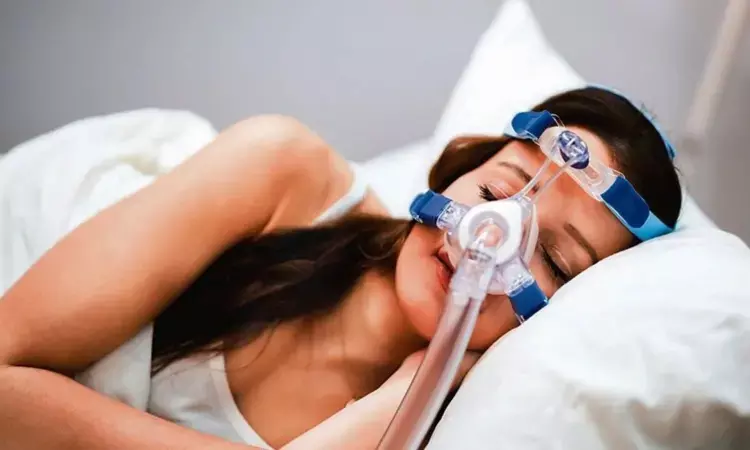- Home
- Medical news & Guidelines
- Anesthesiology
- Cardiology and CTVS
- Critical Care
- Dentistry
- Dermatology
- Diabetes and Endocrinology
- ENT
- Gastroenterology
- Medicine
- Nephrology
- Neurology
- Obstretics-Gynaecology
- Oncology
- Ophthalmology
- Orthopaedics
- Pediatrics-Neonatology
- Psychiatry
- Pulmonology
- Radiology
- Surgery
- Urology
- Laboratory Medicine
- Diet
- Nursing
- Paramedical
- Physiotherapy
- Health news
- Fact Check
- Bone Health Fact Check
- Brain Health Fact Check
- Cancer Related Fact Check
- Child Care Fact Check
- Dental and oral health fact check
- Diabetes and metabolic health fact check
- Diet and Nutrition Fact Check
- Eye and ENT Care Fact Check
- Fitness fact check
- Gut health fact check
- Heart health fact check
- Kidney health fact check
- Medical education fact check
- Men's health fact check
- Respiratory fact check
- Skin and hair care fact check
- Vaccine and Immunization fact check
- Women's health fact check
- AYUSH
- State News
- Andaman and Nicobar Islands
- Andhra Pradesh
- Arunachal Pradesh
- Assam
- Bihar
- Chandigarh
- Chattisgarh
- Dadra and Nagar Haveli
- Daman and Diu
- Delhi
- Goa
- Gujarat
- Haryana
- Himachal Pradesh
- Jammu & Kashmir
- Jharkhand
- Karnataka
- Kerala
- Ladakh
- Lakshadweep
- Madhya Pradesh
- Maharashtra
- Manipur
- Meghalaya
- Mizoram
- Nagaland
- Odisha
- Puducherry
- Punjab
- Rajasthan
- Sikkim
- Tamil Nadu
- Telangana
- Tripura
- Uttar Pradesh
- Uttrakhand
- West Bengal
- Medical Education
- Industry
Sulthiame safe to use for moderate to severe Obstructive sleep apnea

New research found that Sulthiame is safe and demonstrated a good safety profile in moderate and/or severe obstructive sleep apnea (OSA) by reducing the more than 20 events/h of OSA on average. The trial results were published in the journal American Journal of Respiratory and Critical Care Medicine.
Obstructive sleep apnea (OSA) is characterized by frequent episodes of airway collapse, deranged blood gases, autonomic activation, and sleep fragmentation. Multiple therapies have been developed for OSA but there is not much data on efficacy, compliance, or tolerability. In the recent past individualized therapies, which identify the phenotypic variants have also been developed for OSA. One such management method is the pharmacological inhibition of the carbonic anhydrase (CA) enzyme. Sulthiame which is a CA inhibitor commonly used for epilepsy has been found to cause respiratory stimulation due to CA inhibition. Hence, researchers from Sweden and Germany conducted a study to explore the safety and tolerability of the carbonic anhydrase inhibitor sulthiame (STM) in OSA.
Between February 2018 and December 2019, the 4-week double-blind, randomized, placebo-controlled dose-guiding trial was conducted in patients with moderate and/or severe OSA not tolerating positive airway pressure treatment. The primary outcome of measurement was to evaluate the safety and tolerability of 4 weeks of treatment with STM in patients with moderate to intermittent OSA. Measures of sleep apnea intensity, oxygenation, sleep quality, and patient-related outcomes constituted secondary outcomes.
Findings of the study:
- Intermittent paresthesia was reported by 79%, 67%, and 18% of patients receiving 400 mg STM (n = 34), 200 mg STM (n = 12), and placebo (n = 22), respectively.
- Dyspnea was reported after 400 mg STM (18%).
- Six patients who were from the higher dose group withdrew because of adverse events but there were no serious adverse events.
- The apnea–hypopnea index was reduced from 55.2 to 33.0 events/h (−41.0%) in the 400-mg group and from 61.1 to 40.6 events/h (−32.1%) after 200 mg (P < 0.001 for both) by using STM.
- Corresponding placebo values were 53.9 and 50.9 events/h (−5.4%).
- The apnea–hypopnea index reduction threshold of ⩾50% was reached in 40% of patients after 400 mg, 25% after 200 mg, and 5% after placebo.
- Mean overnight oxygen saturation improved by 1.1% after 400 and 200 mg (P < 0.001 and P = 0.034, respectively).
- There was no change noticed in the Patient-related outcomes.
This is one of the strongest trials that explored the potential pharmacological therapy in OSA. But large-scale clinical studies are needed to justify the usage of STM in OSA.
Further reading: Hedner J, Stenlöf K, Zou D, et al. A Randomized Controlled Clinical Trial Exploring Safety and Tolerability of Sulthiame in Sleep Apnea. Am J Respir Crit Care Med. 2022;205(12):1461-1469. doi:10.1164/rccm.202109-2043OC
BDS, MDS
Dr.Niharika Harsha B (BDS,MDS) completed her BDS from Govt Dental College, Hyderabad and MDS from Dr.NTR University of health sciences(Now Kaloji Rao University). She has 4 years of private dental practice and worked for 2 years as Consultant Oral Radiologist at a Dental Imaging Centre in Hyderabad. She worked as Research Assistant and scientific writer in the development of Oral Anti cancer screening device with her seniors. She has a deep intriguing wish in writing highly engaging, captivating and informative medical content for a wider audience. She can be contacted at editorial@medicaldialogues.in.
Dr Kamal Kant Kohli-MBBS, DTCD- a chest specialist with more than 30 years of practice and a flair for writing clinical articles, Dr Kamal Kant Kohli joined Medical Dialogues as a Chief Editor of Medical News. Besides writing articles, as an editor, he proofreads and verifies all the medical content published on Medical Dialogues including those coming from journals, studies,medical conferences,guidelines etc. Email: drkohli@medicaldialogues.in. Contact no. 011-43720751




